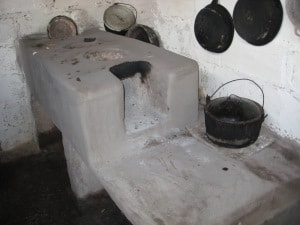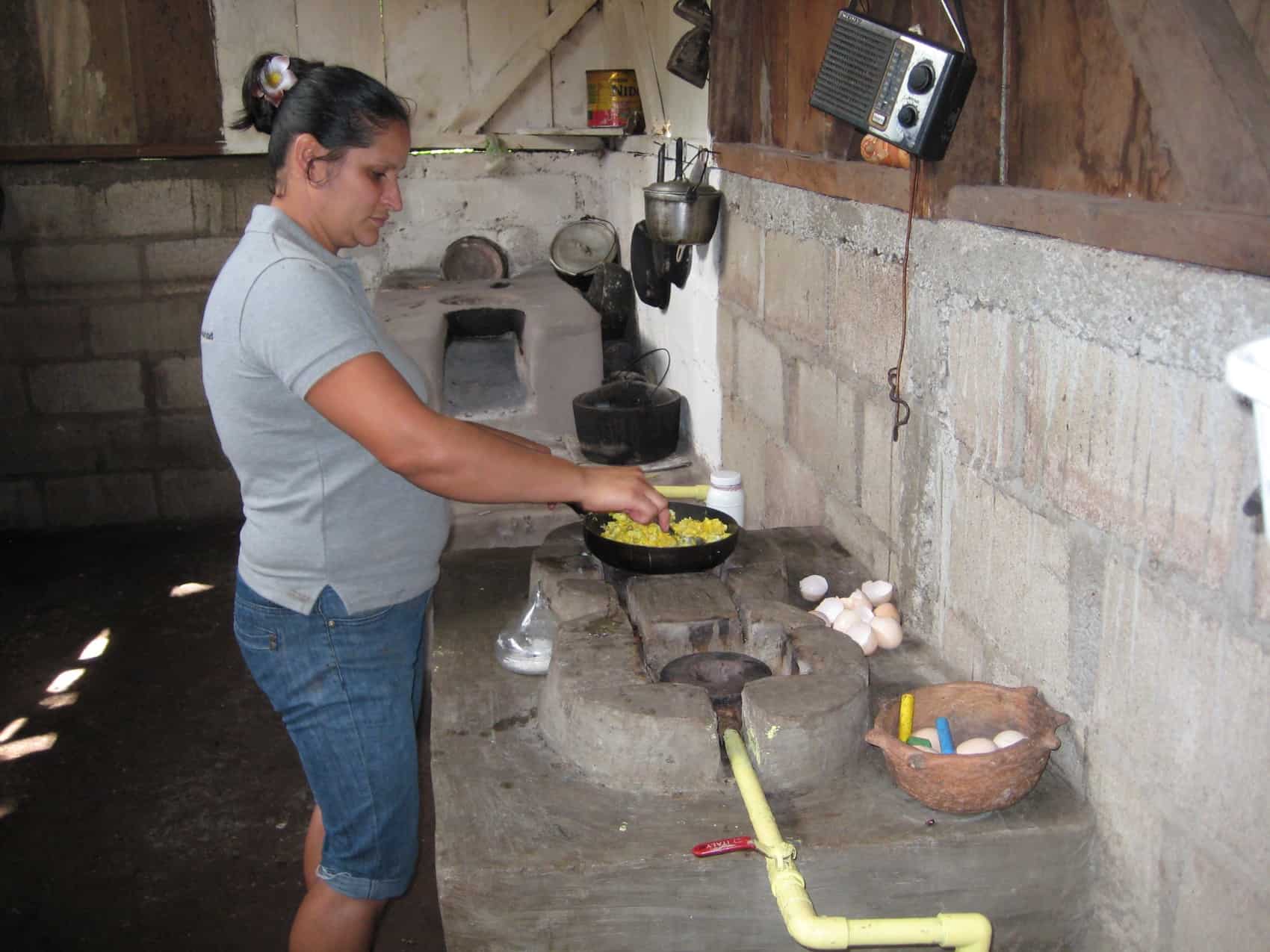YALI, Nicaragua — Fatima Blandon knew that her family was lucky to have been chosen as part of the bio-digester pilot program, but she struggled to believe that it would actually work. A system that turned manure and coffee wastewater into a clean-burning fuel sounded too good to be true.
“I was very skeptical,” Blandon said as she shifted her baby son from one arm to the other. “I was getting desperate, with the the workers staying in our house, and I asked them: Is this really going to work?
“It wasn’t until we fried the first egg with biogas that I actually believed it,” she added, referring to the methane generated in the digester.
This clean, affordable fuel source for coffee farmers here in the remote hills outside Yali, Jinotega was a byproduct of a wastewater management pilot program sponsored by the sustainable-certification labeling organization UTZ Certified, with support from the Dutch government. Along with purifying the acidic wastewater from the coffee milling process, the so-called biogas is helping improve the quality of life for many small farmers here.
According to Blandon, some of their neighbors said they had “won the lottery” with the biogas system, while others cocked a dubious eyebrow, asking if the food’s taste and smell would be affected by the gas created from plant and animal waste.
Fatima’s husband, Francisco Blandon, said that the food tasted the same as with wood, the typical fuel source for cooking and other household needs here. Fatima Blandon handed off the infant to her son in their earthen-floor kitchen and whipped up some scrambled eggs with onion and sweet peppers from their garden, served on homemade corn tortillas.
Meanwhile, the home’s original wood-burning stove sat in the corner of the kitchen. Wood-burning stoves have a romantic vibe in some circles, but here they are considered health risks for the women who cook with them everyday. Inefficient wood-burning stoves can be a major source of indoor air pollution in developing countries and can have adverse effects on the health of women — who are traditionally tasked with cooking for the family —a nd their children, including low birthrates and respiratory problems.

The traditional stove in the Blandon home looks like a hollow adobe rectangle with two holes cut into the top. Firewood is fed through an opening on the side and a pot or pan sits over the holes to be heated. Across Nicaragua, from the capital, Managua, to coffee-growing country, it’s common to see large bundles of branches cut down to fit this kind of stove.
The new methane-burning stove would look familiar to most U.S. cooks, with two burners set into a concrete frame. The family still uses the wood-burning stove on rare occasions depending on the quantity of food Fatima prepares, but the biogas stove has become her main cooking source, she said.
Fatima said that the stove has freed up her day and even democratized some of the household chores in the family. Without needing to tend to an unwieldy fire, Fatima can cook with her children in the kitchen, where before it was too hot or smoky for them to tolerate. Cooking with biogas is also much faster than wood, so the family has more free time. Even Francisco has learned a few basics in the kitchen, he sheepishly admitted.
The potential for biogas from coffee, though, is much greater than helping individual families. Back at El Carmen wet mill in Diriamba, several hours south of the Jinotega region, CISA Exportadora uses the methane captured from their water management system to reduce their operating costs.
The diesel generator at the mill, which powers lights and equipment for two wet mills, normally consumes four gallons of diesel per hour. By injecting the captured methane from the facility’s bio-digester into the engine to reach an ideal mix of 60-40 methane to diesel, the mill can reduce its diesel consumption to two gallons per hour.
CISA Exportadora’s El Carmen mill, the largest wet mill in Nicaragua, is in the process of getting certified to sell carbon offset credits based on the diesel savings. If the mill becomes certified and is able to sell its credits, CISA could break even on its financial investment in nine years, said Luis Alberto Chamarro, general manager for Mercon Central America, which owns the mill.
These new water management and biogas systems don’t come cheap. The improvements to the El Carmen mill alone cost more than $137,000 in construction, operation and other costs, according to figures provided by UTZ. Donors, including UTZ and the Dutch government, provided more than $100,000 of the funding and CISA the remaining $34,000.
Luis Alberto Chamarro, Mercon’s general manager for Central America, said that the project was worthwhile, even if it was expensive, because the mill would otherwise have had trouble complying with stricter water pollution regulations that Nicaragua implemented several years ago.
But these costs are much harder to shoulder for smaller producers, like the farmers at La Hermandad Cooperative in San Ramón, Matagalpa, where for years they processed their coffee with a hand-cranked mill without a roof to keep workers out of the rain. In these cases, UTZ provided the financial support, including technical expertise and equipment, while the cooperative covered the labor. The wet mill upgrades for La Hermandad and another cooperative, Danilo González, cost over $22,000 in total.
For many cooperatives here, which often lack the resources to make large infrastructure investments, these projects remain too expensive. The bio-digester used by the Blandon family cost roughly $2,000, for example. UTZ hopes that they will be able to reduce that cost to somewhere closer to $1,200 as the scale of the program increases in the post-pilot phase.
UTZ has expanded its operations into Guatemala, Honduras, Peru and Brazil. Funding from the certification company depends on the size of the cooperative or business, ranging from donating all the materials and expertise, to offering program management for larger coffee producers who can pay for some or all of the costs through loans.
Mercedes Guiterrez, head of projects for CECOCAFEN, the union of cooperatives in Matagalpa that includes La Hermandad and Danilo González, said that coffee processing has changed drastically since she was a child. “When I was a girl, producers would have to wait for it to rain to process the coffee cherries with a hand-crank mill,” she said.
Guiterrez said that the water management and biogas programs have been well worth their cost. “People aren’t working until dawn [with these new mills],” she said. “The health of these families and their quality of life is improving.”
Read the first story in this two-part series on how farmers are reducing the environmental impact of their coffee in Nicaragua here.






